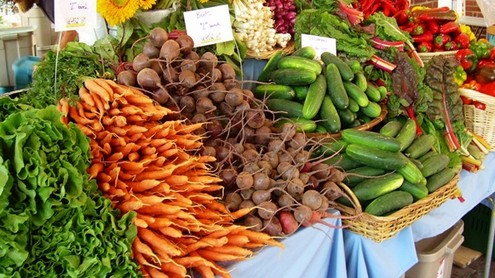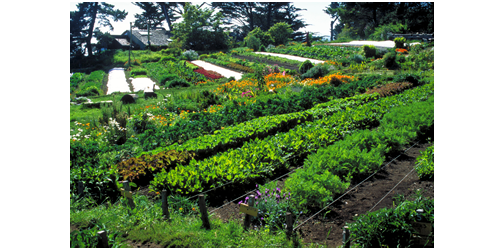For Increased Food Production, the Smallholder Farmer Deserves Attention

However, over the past decade, the performance of agriculture sector in Ghana declined from 51 per cent to 36 per cent of Gross Domestic Product (GDP), with the rural poor now accounting for about three-quarters of all Ghanaians living below the poverty line and living smallholder farmers (whose farms average just 1.2 ha) with limited opportunities for prosperity.
In the northern region of the country, for example, farmers grow 66 per cent of the country’s rice, but the region remains the poorest, with almost two-thirds of the population living in poverty and lowland rice yielding only 0.5 tons/ha.
The smallholder farmer’s contribution to the national economy appears not only to be unrecognized, but is also confronted with serious constraints including limited access to productive resources such as land, improved seed and planting materials, agro-chemicals, credit, labour, information, technology, sustainable farming practices, access to markets and strong farmer-based organizations, among others.
To transform Ghana into an exporter of rice and save about US $ 500 million now spent on rice imports will, therefore, require interventions such as strong partnerships and strategic planning to make available improved seeds and soil, and water management systems.
It is said that farming begins with a seed and yet there is a shortage of quality seeds suitable for local environmental conditions.
It, therefore, behoves on government, through the Crops Research Institute, as well as private seed companies to embark on the breeding of improved varieties of cassava, maize and cowpea, soybean, rice, sorghum and groundnuts to resource-poor farmers.
Currently, agriculture receives below 10 per cent of financial support to agricultural production while interest rates average 30 to 40 per cent. The appropriate response thus is to expand farmers’ access to credit.
Overcoming the challenges of smallholder farmers will also require the building of networks of agro-dealers to supply farmers with essential agricultural inputs such as improved seeds and fertilizers.
Every year, Africa losses about US $4 billion in food production due to deficiency in soil nutrients– a situation which negatively affects the ability of the continent to feed its people.
The trend ought to be reversed by restoring soil health to degraded farmlands through the application of effective agro-chemicals.
Interventions like Soil Health Programmes are required to disseminate Integrated Soil Fertility Management (ISFM) technologies (soil fertility management practices that integrate organic and inorganic sources of soil nutrients in combination with improved seeds and good agronomic practices) to smallholder farmers.
The absence of or limited access to markets for farm produce and low prices contribute to food loss and waste. Farmers’ choices are limited to selling immediately at ridiculous prices or allowing the harvest to go waste. Policies must, therefore, be designed to facilitate access to commercial buyers of farm produce.
And without knowledge about local staple crops, changing climatic conditions, crop diseases and pests, efforts at increased food production will be meaningless, and the desired intervention is to strengthen agricultural education by supporting the training of scientists in local staples and in breeding new crop varieties to meet local tastes and consumer preferences.
Addressing the challenges facing the smallholder farmer in Ghana can hardly succeed without paying particular attention to women smallholder farmers.
The call for special attention to women smallholder farmers and to accelerate the pace of the fight for gender equality by socially, economically, politically and legally empowering the rural woman smallholder farmer is a prescription both by local and international law.
Indeed, gender equality and women’s empowerment commitments are enshrined in Ghana’s 1992 Constitution while a number of legislations have been passed and various international Conventions and treaties that seek to promote the rights of women have been ratified.
Article 14 of the Convention on the Elimination of all forms of Discrimination Against Women (CEDAW), for example, enjoins state parties to take into account the problems of rural women and the role they play in the economic survival of their families.
The Beijing Declaration and Platform for Action, which was adopted in 1985 at the fourth World Conference on Women, also directed its focus on improving the situation of rural women through equal access to productive resources, especially land, capital and technology, as well as gainful employment, decision-making, education and health services.
The Platform for Action further emphasized the need for effective strategies to empower women living in the rural areas and underscored the importance of developing a more comprehensive knowledge of all forms of work while calling on national, regional and international statistical offices as well as other relevant governmental and United Nations agencies to develop an international classification of activities for time-use statistics that is sensitive to the differences between women and men in remunerated and unremunerated work.
The usefulness of rural women in agriculture and their contribution to the alleviation of hunger and poverty have also attracted the attention of the Commission on the Status of Women (CSW) — a functional Commission of the United Nations Economic and Social Council (ECOSOC) and the principal global policy-making body dedicated exclusively to gender equality and the advancement of women.
At their 56th session in New York in 2012, which was held on the theme: ‘The empowerment of rural women and their role in poverty and hunger eradication, development and current challenges,’ the contribution of rural women was acknowledged as a pre-requisite for economic growth and development and their empowerment seen as a potential for poverty eradication, sustainable development and accelerated progress towards achieving internationally-agreed development goals including the Millennium Development Goals (MDGs).
Source: allafrica





